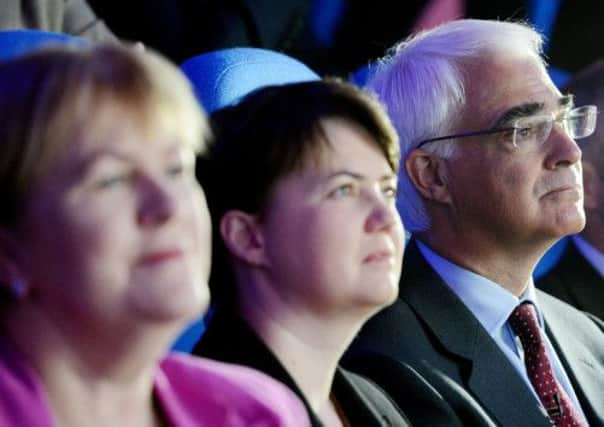Eddie Barnes: Pro-UK camp aim for right message


No pro-UK speech is therefore complete without the obligatory acceptance that “of course” Scotland could be an independent country.
And yet the negative tag is still pinned to their lapels. Figures on the pro-UK side say it is exasperating. When a positive argument or speech is made, the media doesn’t bother paying any attention. But when Better Together wades in with some knocking copy attacking the SNP’s plans, it gets put up in lights, to be closely followed by leader columns ranting against Unionist scare tactics.
Advertisement
Hide AdAdvertisement
Hide AdThe negative tag is one that the campaign may have simply to accept, given the job the media has in the debate. The criticism, however, is that the pro-UK side has so far failed to set out a detailed positive argument setting out why, exactly, the UK is worth it. What’s the point of it?
There have been attempts, most notably in a speech by David Cameron in Edinburgh last year, when he set out the practical and emotional case for “our United Kingdom”. The UK was not “just some sort of deal, to be reduced to the lowest common denominator,” he declared. “It’s a precious thing. Its about our history, our values, our shared identity.”
Fine by me, respond pro-independence supporters such as the former SNP MSP Andrew Wilson, who has long argued that the British ties and values would remain, and prosper, after the UK political union ends. As he told the SNP conference last month: “We should be intensely relaxed about the reality that a sense of Britishness and the many shared British institutions that could, should and would survive post-independence.”
Little noticed, however, was a more detailed pro-UK argument set out last week in a significant speech by one of the pro-UK team’s leading back-room figures, Professor Jim Gallagher. Formerly the leading Whitehall civil servant on devolution, Gallagher used a lecture at Glasgow University to argue that political union was the bedrock on which all else in the UK sat – “the essential foundation for things even nationalists say they want to keep”. It is a flexible, evolving political union which ties us together economically, he said. And it was this foundation of political union which maintains “social solidarity” too, he added. It enabled money to be shared around the whole UK, and transferred to where it was needed most.
This was “morally right”. Take the political union away, and that shared social community is eroded too.
True to form, the speech didn’t get any air time last week, but the practical and moral case he made may provide a foundation for the pro-UK side over the coming months. Nothing but nay-saying next summer is the surest way to a Yes vote in the autumn.